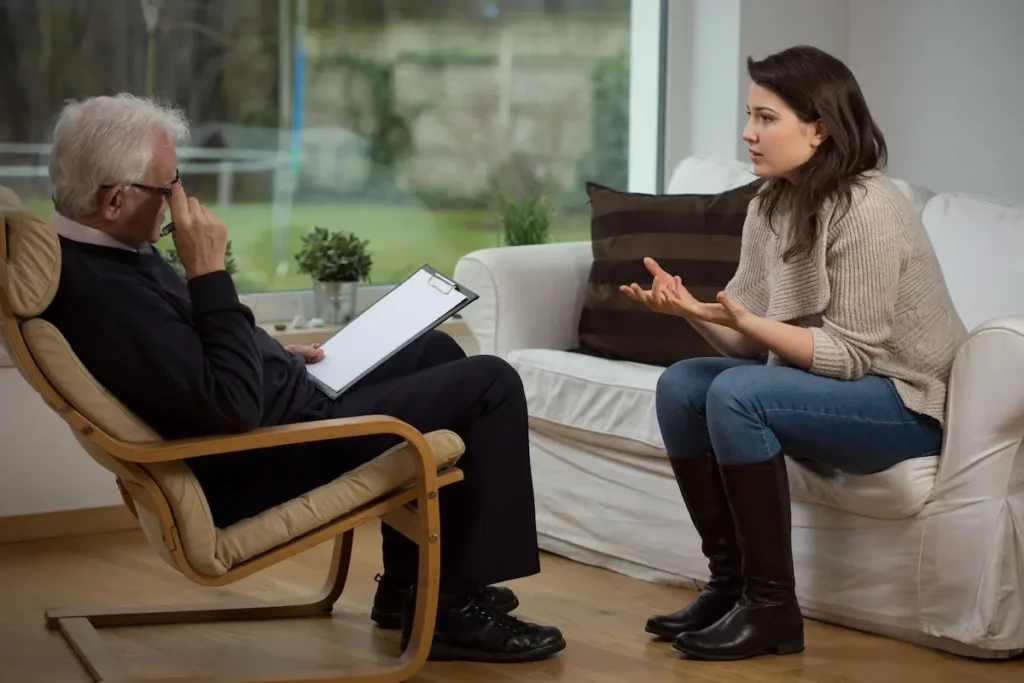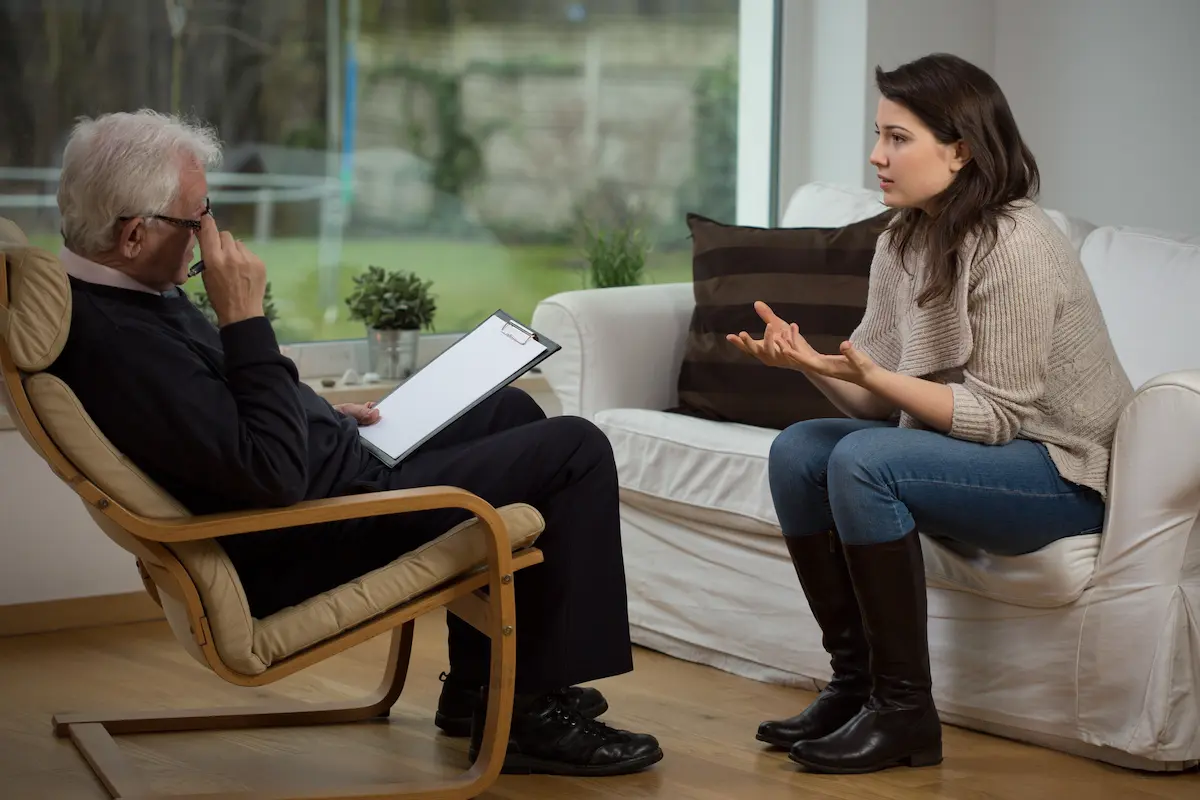Helicopter parenting can create a vicious cycle. The impact helicopter parents have on their children is significant, and these children are often forced into “self-improvement habits” such as tutoring, obsession with grades, or even multiple competitive sports.
These habits can be hard to break when you, the child of helicopter parents, become a parent yourself. So, how can you recover from helicopter parenting and break the cycle with your own children?
Recovering from helicopter parenting involves the following:
- Understand Your Motivation
- Educate Yourself on The Effects
- Do Not Become Defensive
- Nurture Your Child’s Independence
- Look At Yourself and Become Vulnerable
- Understand That It Is a Two-Way Street
- And more …
Recovering from helicopter parenting can hold vast challenges, but it is likely to be well worth your while. Continue reading with us as we discuss how you can minimalize the damage done and improve yourself by recovering from helicopter parenting and avoiding carrying on with these negative habits with your own children.

Related Reading: Helicopter Parents Vs. Lawnmower Parents [HERE’S THE DIFFERENCE]
1. Understand Your Motivation
Some parents become helicopter parents as a way to express their need to be in control, have all the power, or have the spotlight.
However, many parents practice this parenting style because they genuinely believe it is in their children’s best interest to look out for them at all times. If you grew up with a helicopter parent (or, yikes, two), it can be easy to fall into these habits, thinking they are best for your child, since that was what was modeled for you growing up.
You need practice with other types of parenting styles to understand that helicopter behavior can easily become counterproductive, as it often stems from a much deeper desire to give your child every opportunity in life out of the fear of your own failure.
Check out our post on the more dominant and well-researched parenting styles, including:
- Authoritarian
- Authoritative
- Permissive
- Uninvolved/neglectful
2. Educate Yourself on the Effects
Only you, as the parent, can feel whether or not the helicopter parenting style has the opposite effect as your intentions.
By not allowing your child or children to make the necessary mistakes and experience the consequences of their actions, they will have a disadvantage over others.
It is crucial that any child of any age develop the needed mechanisms to deal with failure and obstacles life will throw at them.
It becomes impossible for them to do this when you do everything for them, as these children will finally find themselves unable to successfully manage their lives as adults.
Helicopter-parented children will often experience higher instances of depression, anxiety, and stress, as well as the inability to make decisions independently. You may well know that all of this is true, having experienced helicopter parenting in your own childhood (and youth).
You must try your best to understand that this parenting style will harm any child more than good and do your best to avoid falling into the same traps as your parent(s).
3. Do Not Become Defensive
If you start thinking about the possibility that you are a helicopter parent, it can become clear that your over-involvement can harm your child or children. This is the ideal time to practice how to keep your emotions in check.
Coming off as defensive can serve as a confirmation that your efforts are unnecessary and overwhelming.
While it may become frustrating and time-consuming, providing your rationale for your decisions and the learning activities that come with it can assure you go a long way in dealing with your children’s anxiety and making it easier on them.
4. Nurture Your Child’s Independence
You can start to combat the adverse effects of helicopter parenting by supporting your child or children’s need for independence.
You need to understand by taking on the tasks your child should be performing as a student, you are actually turning the student into a spectator.
For example, if your child comes to you with questions regarding school work or an extracurricular activity, you should encourage them to ask the person handling them directly instead of immediately jumping in to contact their teacher or coach yourself (or just doing the work for them).
Your children need to be able to practice communicating with people, by themselves, in the adult world.
While you may be able to intervene with the teacher or tutor, you won’t be able to contact your children’s bosses in the future.
Find ways you can hold your child accountable, work to develop their confidence, and encourage them to share their own opinions and figure things out on their own.
Do what you can to let your child develop a higher sense of self from the youngest age possible. This does not mean you do not help them if they run into difficulty getting a response from their teacher or coach, or ask for your help with a difficult situation, merely that you avoid the default scenario being you handling all communications.
5. Look at Yourself and Become Vulnerable
Breakthroughs can only come when you start taking action to change a situation. To truly help your children to thrive in all criteria, you need to take the necessary steps for a positive and long-lasting impact.
Ideally, you should practice becoming a relatable human before you take on your role as a parent. Everyone was young once, and you know you have made mistakes.
You may not want your children to make these mistakes, but they won’t learn if they don’t. You have learned your lessons, and you will be able to come from a place of wisdom and experience instead of coming from a place of superiority. This is especially true when you grew up with a helicopter parent and were not given this vital opportunity until you left home and became an adult.
To start communicating with your child or children, you need to get through to them first. Show them that you care for them and will love them with no strings attached. If this is not understood, there is no hope of them taking your guidance or advice seriously.
6. Understand That Parenting Is a Two-Way Street
Understand that just as your parents and their parents did not know everything, you don’t either. People constantly evolve with the times, and you shouldn’t push your wisdom on your children as a reflex.
Listen and learn from your child as an individual, and you may become surprised to hear what they already know. When you have a disagreement or different opinions, it is essential to know that your child is not you.
They will develop many different views, values, as well as ideas on various subjects. Instead of telling them they are wrong, try to look at the situation from their point of view.
Try your best to understand that you may be able to teach them the correct foundation, but it is unfair of you to try to influence their choices and the way they see and handle different things.
7. Encourage Children to Make Their Own Decisions
If you empower a child to make their own decisions the right way, instead of having the “right” outcome in mind, they will learn independence.
Always praise and give your child or children some credit for creating their own ideas of how to do things. Respect how their mind works. Try to refrain from implying flaws and gaps in their actions as a default. Before being a parent, try to be a friend who listens before you preach.
By empowering your child to find their own voice, they will gain the confidence to make their own decisions before asking you for guidance. What really matters is that each child works to fulfill their own potential, instead of your expectations as the parents. You can truly break the cycle of how your parents made you feel, by allowing your own child(ren) to have agency over their lives.
The only thing you need to stay focused on is that your child or children do this effectively, efficiently, and safely. Other than that, you need to create a healthy distance from there and only offer your support if you need to.
8. Consider Getting Professional Help
Millennials have the tendency to ask their social networks for advice and recommendations. They are great at communicating through social media and getting perspectives from their peers.
Although this advice might be free, it’s not always focused on a specific situation with a professional and trained person. If you feel that you are still recovering from being helicopter parented as a child/youth, you may benefit from parsing through this with a professional. This may help you avoid falling into the same bad habits you observed growing up.
You can also start talking to your child’s teacher to get insight into how they act when they are not in the comfort of their own home and discuss the ways where they could improve and how you can help them without being overbearing.
If you look well, you might encounter somebody who is in the same position as you and have a support system.
Two-way accountability could be rare to nonexistent between parents and their children. This is where outsiders need to be involved in a positive way to see how things could improve.
Continue Reading: How Teachers Deal With Helicopter Parents [IT’S NOT EASY!]
Conclusion
When you make the decision to recover from experiencing and practicing helicopter parenting actively, the outcomes for you and your child or children are sure to improve.
The situation will only get worse if it goes unchecked, and even though each of us will have different ways to express it, the time and effort will not go to waste.

